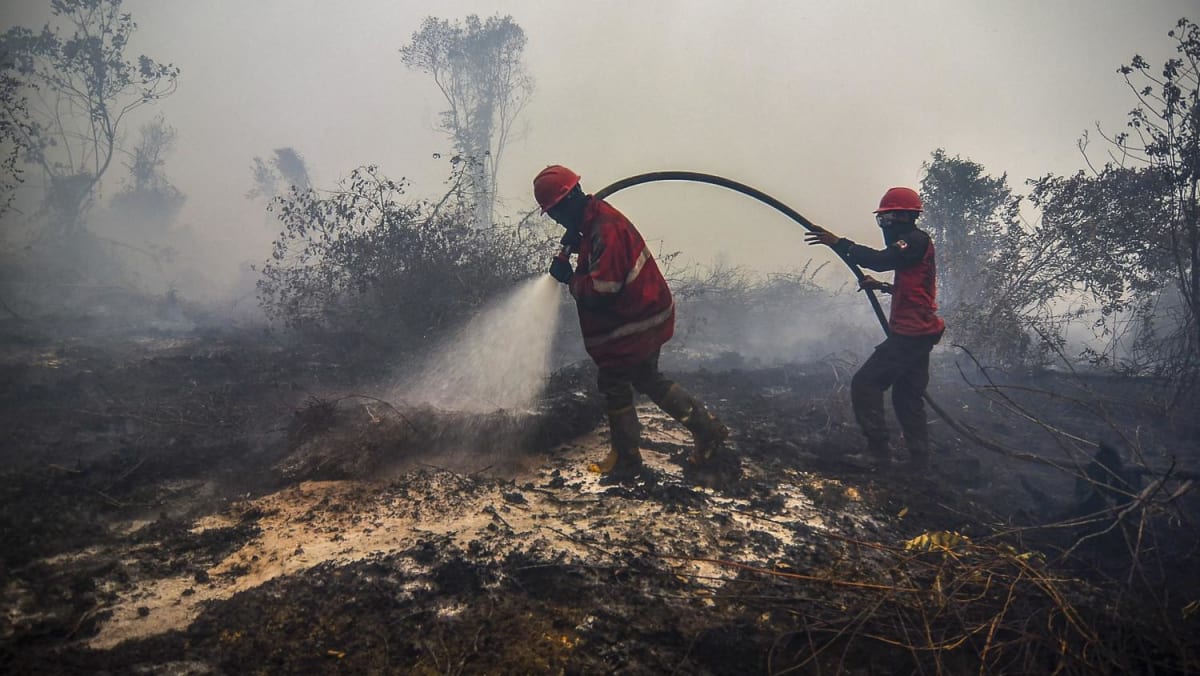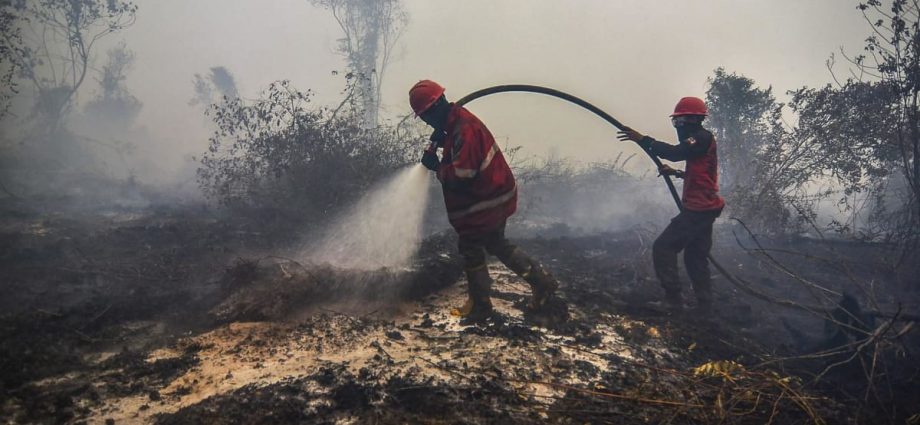
JAKARTA: In preparation for the upcoming dry season, Indonesian authorities are looking to use “weather modification technology” to produce artificial rain that will help prevent peatland fires.
According to state news agency Antara, Peat and Mangrove Restoration Agency (BRGM) head Hartono said that the agency will work with the National Disaster Mitigation Agency (BNPB) to improve water reserves using artificial rain.
“In very vulnerable locations, we are working with BNPB to carry out weather modification technology as an effort to add water reserves through artificial rain,” Mr Hartono was quoted as saying by Antara on Monday (Feb 6).
Local media had previously reported that the weather modification technology, known formerly as artificial rain technology, creates rain that helps to put out fires. It is carried out by seeding cumulonimbus clouds with sodium chloride to cause immediate condensation and rain, Antara reported.
Mr Hartono on Monday said that BRGM will update regional heads of vulnerable areas on the latest weather conditions that could cause fires.
“We always inform seven regional heads whose areas are prone to peatland fires about the latest conditions regarding humidity and drought in their areas,” Mr Hartono was quoted as saying by Antara.
The potential for fires is reportedly spread across the provinces of Riau, Jambi, South Sumatra, West Kalimantan, Central Kalimantan, South Kalimantan, and Papua.
Antara reported that BRGM will work alongside other agencies, namely the Meteorology, Climatology, and Geophysics Agency (BMKG) and the National Research and Innovation Agency (BRIN) on the project.
The move to restore degraded peatlands through artificial rain was reported as a preventative measure against the La Nina effect, especially on over-drained peatlands.
The La Nina effect is when peatlands that have been drained through canal construction have the potential to get over-drained during the dry season, making them susceptible to fires.

